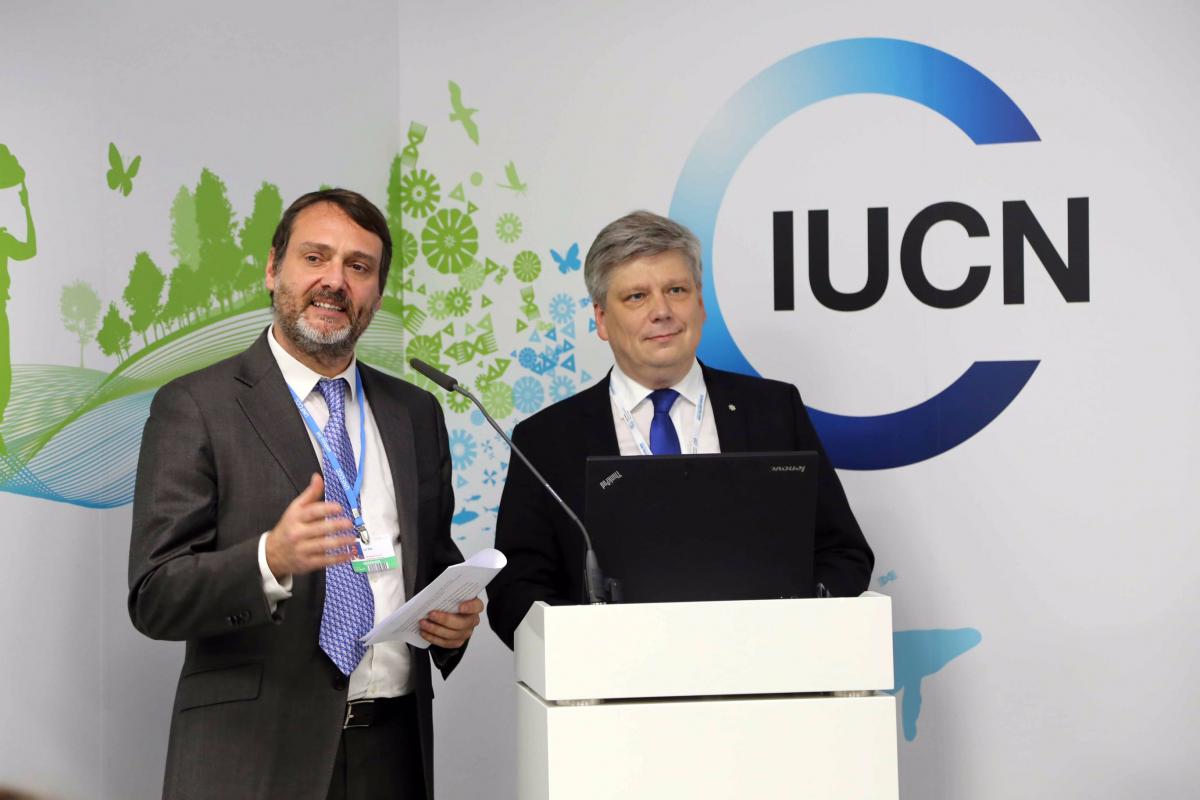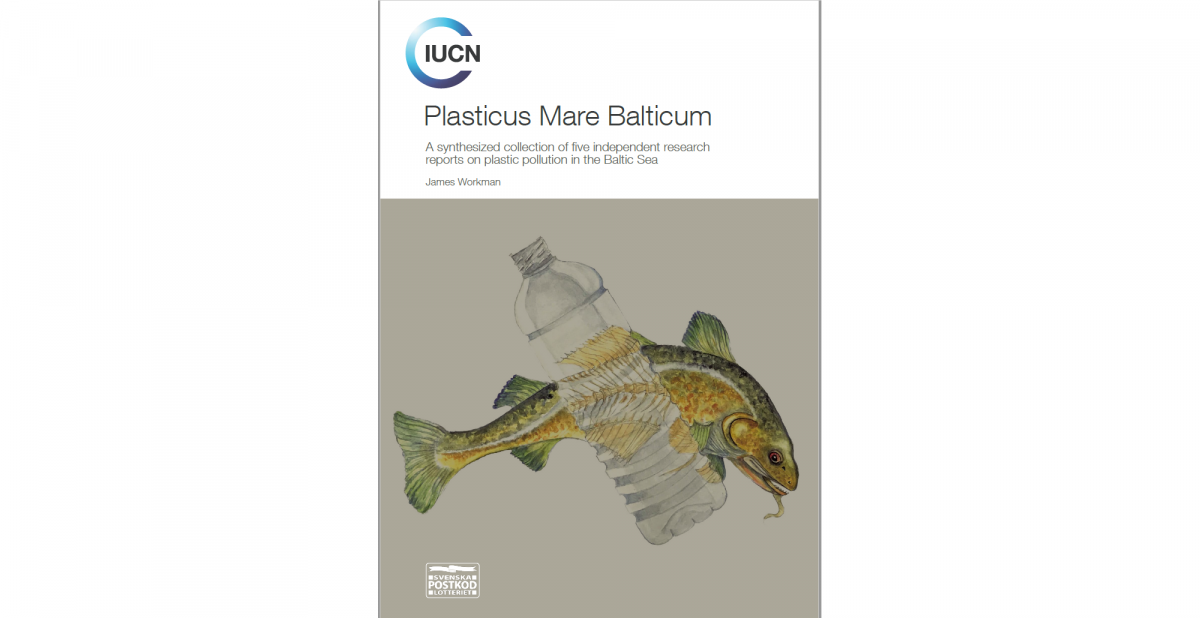COP23 event showcases EU leadership on nature-based solutions
National and regional government officials as well as representatives from the European Commission, business and civil society took part in a panel discussion organised by IUCN Europe at the UNFCCC COP23 in Bonn on Tuesday 14 November on the role of nature-based solutions in helping Europe to mitigate and adapt to climate change. The discussion provided an opportunity to exchange best practices on nature-based solutions as well as ideas for scaling-up implementation in Europe.

Photo: Estonian Environment Minister Siim Kiissler (right), and Luc Bas, Director, IUCN European Regional Office (Credit: IUCN)
Nature-based solutions are a key pillar of IUCN’s global work stemming from the realisation that important societal and economic opportunities can accrue from restoring, better managing and more comprehensively integrating nature into our societies and economies. These solutions have great potential for combating climate change, and EU policy actions and financing schemes, such as the Adaptation Strategy and the Green Infrastructure Strategy as well as large scale demonstration projects for nature-based solutions to climate and water resilience in cities, currently promoted by the Horizon 2020 programme for research and innovation, pave the way for nature-based solutions to contribute to climate resilience.
The Estonian Minister for the Environment, Siim Kiisler, opened the discussion by highlighting the importance Estonia has placed on nature-based solutions, including a high level conference the government organised in Tallinn in October. He thanked IUCN for its positive collaboration in furthering the uptake of nature-based solutions and emphasised that the focus must be on joining forces and the exchange of best practices.
Lord Mayor of Bonn Ashok Sridharan, first Vice-President of ICLEI, then delivered his key note, in which he pointed to experiences in Bonn with nature-based solutions and more specifically with natural flood protection from the River Rhine. The mayor emphasised the importance of cooperation with other cities and establishing networks to exchange best practices on nature-based solutions and scale them up.
The Welsh Government’s Director of Decarbonisation and Energy, Prys Davies, presented examples of successful partnerships for the implementation of nature-based solutions between non-conventional actors, including from science, policy, business, practice and civil society. He provided information on how financing for climate related activities can be used to strengthen the implementation of nature-based solutions and how to better integrate natural solutions into the climate agenda.
Elena Višnar Malinovská, Head of Unit for Adaptation within the European Commission’s Climate Action Directorate General, pointed to the opportunities for funding for nature-based solutions for mitigation and adaptation and called for more project proposals to be submitted.
Wendel Trio, Director of Climate Action Network Europe (CAN Europe), discussed how to bring the value of ecosystems and their services and the benefits of nature-based solutions to the attention of decision makers and investors within the current mind set of growth and development. He also reminded the audience of the need for correct accounting of the mitigation potential of nature-based solutions.
Natalia Vera, Network of Regional Governments for Sustainable Development (Nrg4SD), pointed to the role of subnational governments in implementing nature-based solutions and raised the example of the Regions Adapt project as a basis for collaboration with IUCN.
Peter White, Chief Operating Officer of the World Business Council for Sustainable Development (WBCSD), argued that companies that truly value nature will be more successful, citing for example a company which had used poplar trees to absorb and degrade dioxane runs-offs, having found that this would be considerably cheaper than the technological alternative.
Luc Bas, Director of the European Regional Office, concluded that many good examples exist but scaling up remains a challenge. He added that Europe needs to create a level playing field for nature-based solutions and Natural Capital validation to strengthen the case for investment in nature-based solutions.

